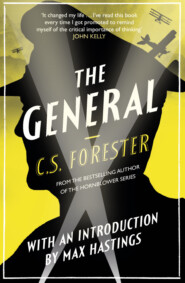скачать книгу бесплатно
If I were fierce, and bald, and short of breath,
I’d live with scarlet Majors at the Base,
And speed glum heroes up the line to death.
You’d see me with my puffy petulant face,
Guzzling and gulping in the best hotel,
Reading the Roll of Honour. ‘Poor young chap,’
I’d say – ‘I used to know his father well;
Yes, we’ve lost heavily in this last scrap.’
And when the war is done and youth stone dead,
I’d toddle safely home and die – in bed.
Fed by such brilliant derision, the delusion persists that the First World War was unique in its chasm between innocent youth sacrificed in the trenches, and slothful cowards skulking at the rear. In reality, in all wars since 1914, for each rifleman confronting the enemy, at least ten and sometimes twenty officers and men have fulfilled support functions. Every surviving veteran of World War II is today absurdly dubbed a ‘hero’, yet only a small fraction performed any role which put them at greater risk of mortality than they faced in civilian life. Throughout the 1939–45 conflict, Churchill deplored the high proportion of the British Army which never heard a shot fired. It fell to army chief Gen. Sir Alan Brooke repeatedly to rehearse to the prime minister the argument that modern conflict demands a long administrative ‘tail’ for the ‘teeth’ arms. Fighting soldiers of the 1939–45 era liked their brethren who manned office desks and ate hot lunches no more than did Sassoon his ‘scarlet Majors’.
In the pages above, I have deliberately avoided tracing the career of C.S. Forester’s Curzon, because to do so would be to deny readers of this remarkable and compelling novel the pleasure of discovering his history for themselves. My objective has been to set in context the experiences both of the writer and of the character he depicted. Cecil Forester was a friend of my parents whom I met once or twice – a lean, bony, ascetic figure with a twinkling eye which caused him to reflect in everything he wrote his consciousness that the play of human affairs is always a comedy; that we all look equally ridiculous in the bath. It is interesting that Adolf Hitler – a man lacking both cultural judgement and a significant sense of humour – relished the 1937 German edition of The General, and presented specially bound copies to favourites, including Goering and Keitel. He urged them to read the novel, which, he said, offered a penetrating study of the British military caste they would soon meet – and defeat – in battle.
No more than Sir Douglas Haig was Curzon a wicked man, as Germany’s commanders in the Second World War were indeed wicked men, because they colluded in barbarous deeds unrelated to military imperatives. The British generals of 1914–18 did the best they could for their country. They possessed virtues and vices bred into the British military caste over many centuries, but in the unprecedented circumstances of France and Flanders these qualities were tested almost to destruction. It is understandable that today the British people decline to celebrate the 1918 victory of Foch and Haig, because its human cost is deemed to have been disproportionate; but it is irrational that meanwhile they untiringly recall and applaud the 1944–45 triumphs of Eisenhower and Montgomery.
The contrast is explained, if not justified, in part by the fact that it proved necessary to fight and overcome German expansionism a second time in the course of the twentieth century. This caused many people to conclude that the earlier struggle had been a failure, the achievement of victory in 1918 annulled by subsequent events. In some measure, this was true. But a balanced perspective, such as should be attainable a century after the event, suggests that if the Kaiser’s Germany had won the First World War, Europe would have paid a terrible forfeit. It is much too simplistic to look back on the 1939–45 conflict as Britain’s ‘good’ war, and 1914–18 as its ‘bad’ one. The war poets are so often misinterpreted by modern readers, that it is necessary to remind ourselves that Wilfred Owen – to name only the foremost – went to his grave in November 1918 overwhelmed by the horror of his generation’s experience, but unwavering in his conviction that the allied cause was just, and had to be upheld in arms, a view in which some of us remain assured that Owen was right.
A twenty-first-century reader who takes up The General will discover no cause to love Curzon’s kind. But C.S. Forester recognised that his fumbling half-hero was as much a tragic figure as the men whom he led, often to their deaths. The author ends his tale as he began it, with a drollery: ‘And now Lieutenant-General Sir Herbert Curzon and his wife, Lady Emily, are frequently to be seen on the promenade at Bournemouth, he in his bathchair with a plaid rug, she in tweeds striding behind. He smiles his old-maidish smile and his friends are pleased with that distinction, although he plays such bad bridge and is a little inclined to irascibility when the east wind blows.’ A modern reader who wishes to understand something about the nature of the men who directed Britain’s Great War will learn more from the pages of Forester than from those of many modern pundits and novelists, marching doggedly through the centenary of 1914 bearing knapsacks still laden with myths and clichés.
Max Hastings
January 2014
Вы ознакомились с фрагментом книги.
Для бесплатного чтения открыта только часть текста.
Приобретайте полный текст книги у нашего партнера:
